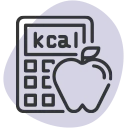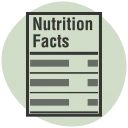Coffee has been consumed by human society for almost 1,200 years. Its popularity is a result of its brain-boosting effect. Presently, many of us start and end of our day with a cup of coffee. It has been found that half of the American population drink coffee regularly and individual consumption is almost 5.1 kg/year. Regardless of its popularity, there are individuals who experience unpleasant side effects after drinking coffee. It is essential to explore the benefits and negative effects of coffee drinking, and how much coffee is permissible to avoid adverse effects.
Benefits of Coffee
- Caffeine is the principal ingredient of coffee and contains a psychoactive property which acts through blocking adenosine receptor activation. The activation of adenosine receptors causes drowsiness by releasing an inhibitory neuromodulator, adenosine. Therefore, drinking coffee provides the central nervous system with stimulatory effects which fights fatigue.
- Phenolic compounds present in coffee have antioxidant properties, which help to balance the oxidant-antioxidant ratio in the body and assist in normalizing metabolic functioning. Intake of natural antioxidants also improves antioxidant enzyme functioning in the body.
- Coffee has a preventive effect against multiple chronic conditions. Health researchers reported prolonged coffee drinking can reduce the risk of developing type 2 diabetes.
- A scientific journal published a report which mentions that coffee has a hepato-preventive effect and prevents hepatic injury, liver cirrhosis, and hepatocellular carcinoma in people with higher risk factors.
- Coffee drinking reduces the risk of developing Parkinson’s disease in men. Women also get this benefit who are not exposed to postmenopausal estrogen.
- Caffeine is also preventative for Alzheimer’s disease. Regular caffeine drinking through coffee is one of the effective ways to reduce the risk of Alzheimer’s disease.
- Physical endurance is significantly enhanced after drinking coffee beverages.
- Research study evidence has shown that suicidal tendency rates dropped 13 percent by increasing consumption of coffee regularly.
- Cancer risks such as liver cancer and colorectal cancer are found to be reduced by drinking coffee. However, the exact mechanism of how coffee is preventative for these kinds of cancer is unknown.
- Regular black coffee (without milk or cream) has a very low-calorie count. A typical cup of black coffee only contains around 2 calories. However, if you add sugar and milk, the calorie count will increase.
Read more: Navigating Holiday Menus: A Guide to Nutritional Analysis for Seasonal Dishes
Side Effects of Coffee
Coffee ingestion has some significant negative side effects. These are as follows:
- Coffee has a direct adverse effect on the cardiovascular system. It has been observed that excessive coffee intake can stimulate cardiac functioning, leading to an increased heart rate (tachycardia), hypertension (high blood pressure), and sporadic arrhythmic (abnormal cardiac rhythm) conditions. The sudden changes in cardiac functioning are noticeable immediately after the intake of coffee. Coffee intake can induce arrhythmia, and therefore, doctors usually do not recommend coffee as a beverage for cardiac patients.
- Low-density lipoprotein (LDL) and increased cholesterol levels are major causes of cardiac disorders because the rise in LDL and cholesterol causes plaque formation. Plaque can develop in any type of blood vessel and often causes obstruction in the blood vessel through blood clotting. The clot can be dislodged to another site through systematic circulation. This phenomenon is termed as thrombo-embolism. Thrombotic complications in the brain, pancreas and ovaries are often associated with cancer. Plaque disruption is one of the major causes of coronary thrombosis and emboli formation, which trigger atherosclerosis. Cafestol and kahwoel are two diterpenes present in coffee. Coffee containing these diterpenes is responsible for increasing cholesterol levels in the blood.
- Calcium is an essential mineral for bone health. It has been found that drinking coffee can hinder calcium absorption in the gastrointestinal tract. Therefore, elderly people who have developed a risk of osteoporosis should avoid drinking more than 1 cup of coffee per day. Individuals in this risk category are advised to increase their consumption of vitamin D and calcium supplements to offset the negative effects of caffeine in their system.
- Caffeine, the bioactive compound of coffee, can cross the placental barrier and can reach the fetus, which can impair the development of a fetus. Excessive caffeine consumption has the potential to cause spontaneous abortion in some pregnancies. Therefore, pregnant women should limit caffeine-containing drinks during the gestation period.
- Restricted intake of caffeine is necessary for children because it has been observed that exceeding the upper limit of caffeine can trigger altered behaviour in children. They often have complaints of anxiety or nervousness with increasing consumption of caffeine.
Read more: How to Inflation Proof your Menu
How Much Caffeine Should You Consume Daily?
One of the challenges with measuring coffee consumption is the variation in what is considered a “cup.” Not all mugs or cups hold the same quantity of liquid. In the United States, the cup measurement used for nutrition labelling is 240 ml, whereas 1 Canadian cup is considered 227 ml. In addition, how much coffee one can consume daily without any negative side effects depends on body weight, age, and physical condition.
Regardless, the following are some evidence-based recommendations of how much coffee is safe to drink daily:
- According to Health Canada, the upper intake of caffeine for healthy adults is 400 mg/ day
- The Federal Department of Health, Ottawa, Ontario, Canada, estimated the upper limit for coffee consumption by children. According to this, children should not exceed 2.5 mg/kg body weight/day.
- Experts estimate that pregnant women should not intake more than 300 mg of caffeine a day.
- The Federal Department of Health estimates the upper limit of caffeine for children should not exceed 2.5 mg per kg of body weight per day.
- Avoid excessive consumption of energy drinks. Energy drinks are known to cause anxiety, sleep disturbances, and cardiac disorders, including tachycardia, jitteriness, and gastrointestinal problems. It has also been reported that excessive intake of this can cause seizures and even death in rare cases. In the Canadian market, a single serving of energy drinks typically contains 80 mg to 180 mg of caffeine (depending on size).
- It is also important to check the product label of the caffeine-containing drink. Health Canada requires both quantitative and qualitative statements regarding the declaration of caffeine on the product label. Often it is worded as, “Do not consume more than (X) container(s)/serving(s) daily” or “Usage: (X) container(s)/serving(s) maximum daily.” The “X” maybe 1 or 2 servings, depending on the vitamin and mineral content of the product.
When it comes to social activities, coffee is one of the most convenient and safe beverages. It also improves performance and provides a feeling of wellbeing at the workplace. The restricted intake of coffee provides several health benefits, but if anyone develops a habitual addiction and consumes more than the daily recommended intake, there may be negative side effects.
Read more: UKs New 2022 Menu Labelling Law
Conclusion
Coffee is a main source of antioxidants. The potential health benefits of drinking coffee in moderation include protecting against type 2 diabetes, preventing Parkinson’s disease, lowering the risk of liver cancer, preventing liver disease, and promoting good heart health. However, drinking too much coffee can result in some very unpleasant side effects. MenuSano is a tool that helps restaurants be more transparent with their customers so that they can make healthier choices for themselves. We can make it easy for you with our nutritional analysis software, MenuSano. MenuSano nutrition analysis software helps individuals and restaurants be mindful of the nutritional value of their dishes. The best part is that you can try it for free. Subscribe today for a free trial, contact us to know more, or call us at 1-866-640-2345.



















